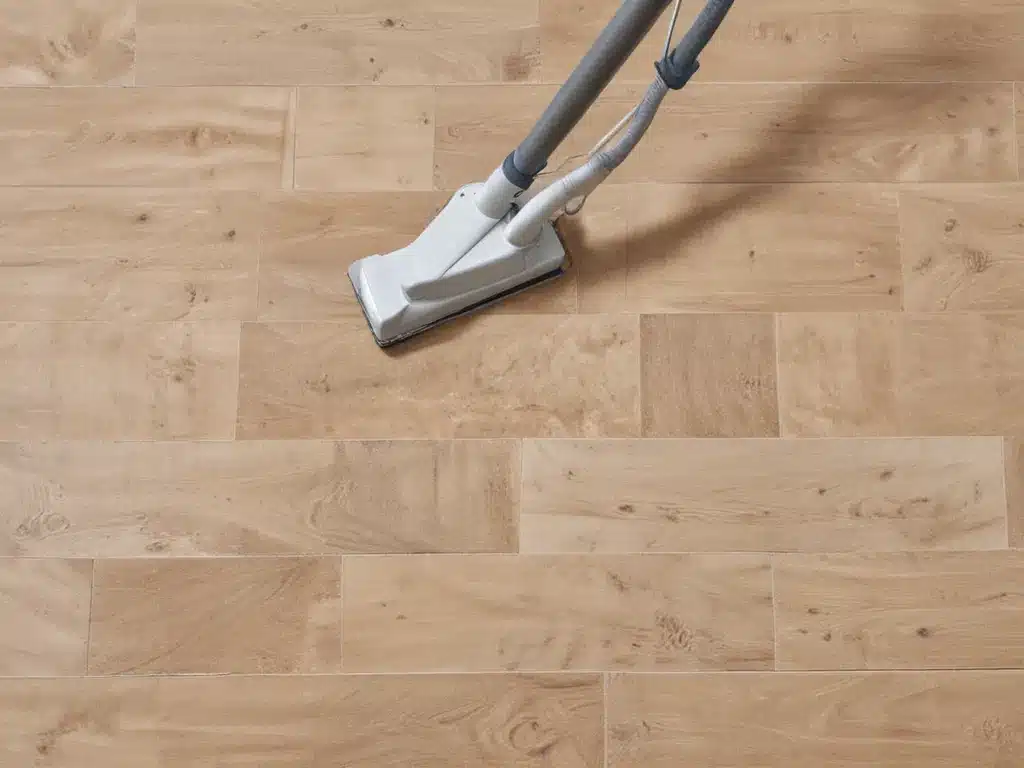Hardwood Floors
Hardwood floors add warmth and beauty to a home, but they require some special care to keep them looking their best. Here are some tips for cleaning hardwood floors:
-
Sweep or vacuum your hardwood floors frequently to remove dust and dirt. Use a soft-bristle broom or vacuum attachment to avoid scratching the floor.
-
Mop hardwood floors with a slightly damp mop. Avoid excessive water, which can damage the wood. I use a spray mop with a microfiber pad and either plain water or a diluted hardwood floor cleaner.
-
For a deeper clean, use a hardwood floor cleaning solution. I mix one part white vinegar with several parts water in a spray bottle. The vinegar helps remove grime without leaving a film.
-
Clean up spills immediately to prevent stains and water damage. Blot the spill with a soft, dry cloth. Avoid rubbing, which can spread the spill and scratch the floor.
-
Put felt pads under furniture legs to prevent scratches. Consider using area rugs in high-traffic zones to limit wear and tear.
-
Avoid excessive heat or moisture, which can cause hardwood floors to crack, warp, or discolor. Use humidifiers or dehumidifiers to maintain the ideal humidity level.
-
Refinish your hardwood floors as needed to restore their shine and protect the wood. professionals recommend refinishing every 5-10 years, depending on traffic.
Tile Floors
Tile floors are durable and water-resistant but still require regular cleaning to prevent grime buildup in crevices. Here are some tile floor cleaning tips:
-
Sweep or vacuum tile floors frequently to remove surface-level dirt and debris. This prevents abrasives from scratching the tile.
-
Mop tile floors with water or a diluted tile floor cleaner. For grout, use a grout brush or toothbrush to scrub away grime.
-
Clean tile grout regularly. I mix baking soda and water into a spreadable paste and apply it to grout lines. Let it sit briefly before scrubbing and rinsing.
-
For grease stains on tile, sprinkle baking soda over the stain, pour vinegar on top, and let the mixture fizz for 15-20 minutes. Then scrub and wipe away. The chemical reaction helps break down grease.
-
Reseal grout lines around tile every 1-2 years to protect against stains and moisture. I apply grout sealer with a small paint brush and wipe away excess.
-
Be cautious with acidic cleaners like vinegar and lemon juice, which can erode grout over time. Always rinse tile thoroughly after cleaning.
-
Set appliances like refrigerators on trays to catch leaks and spills rather than directly on tile. This prevents stains and water damage.
Vinyl Floors
Vinyl floors are affordable, easy to maintain, and mimic materials like wood or stone. Here are my top vinyl floor cleaning tips:
-
Sweep, vacuum, or dust mop daily to remove grit that can scratch vinyl floors. I use microfiber mops and pads which trap dust.
-
Mop with a vinyl floor cleaner and water. Too much moisture can loosen adhesive under sheet vinyl. I wring my mop well and focus on sticky spots.
-
For a deeper clean, mix a few drops of dish soap into warm water and mop. The soap helps remove oily grime. Rinse well with just water.
-
Avoid bleach or ammonia cleaners which can discolor vinyl floors over time. Read product labels closely before using.
-
Place walk-off mats at entrances to absorb shoes, water, and debris. This prevents grit from scratching vinyl near doorways.
-
Reseal vinyl floors every 1-2 years, especially in high-traffic zones. Water-based sealants add protection without altering traction.
-
Limit direct sunlight which can cause vinyl floors to fade or discolor over time. Close blinds when sunlight beams onto vinyl.
With the right tools and techniques, you can keep all types of flooring looking like new for years to come! Let me know if you have any other floor cleaning questions.







